Unit Circle Bingo Game
This blog post contains Amazon affiliate links. As an Amazon Associate, I earn a small commission from qualifying purchases.
I decided to create a Unit Circle Bingo Game to give my Pre-Calculus students some much-needed practice with evaluating trig functions using the unit circle.
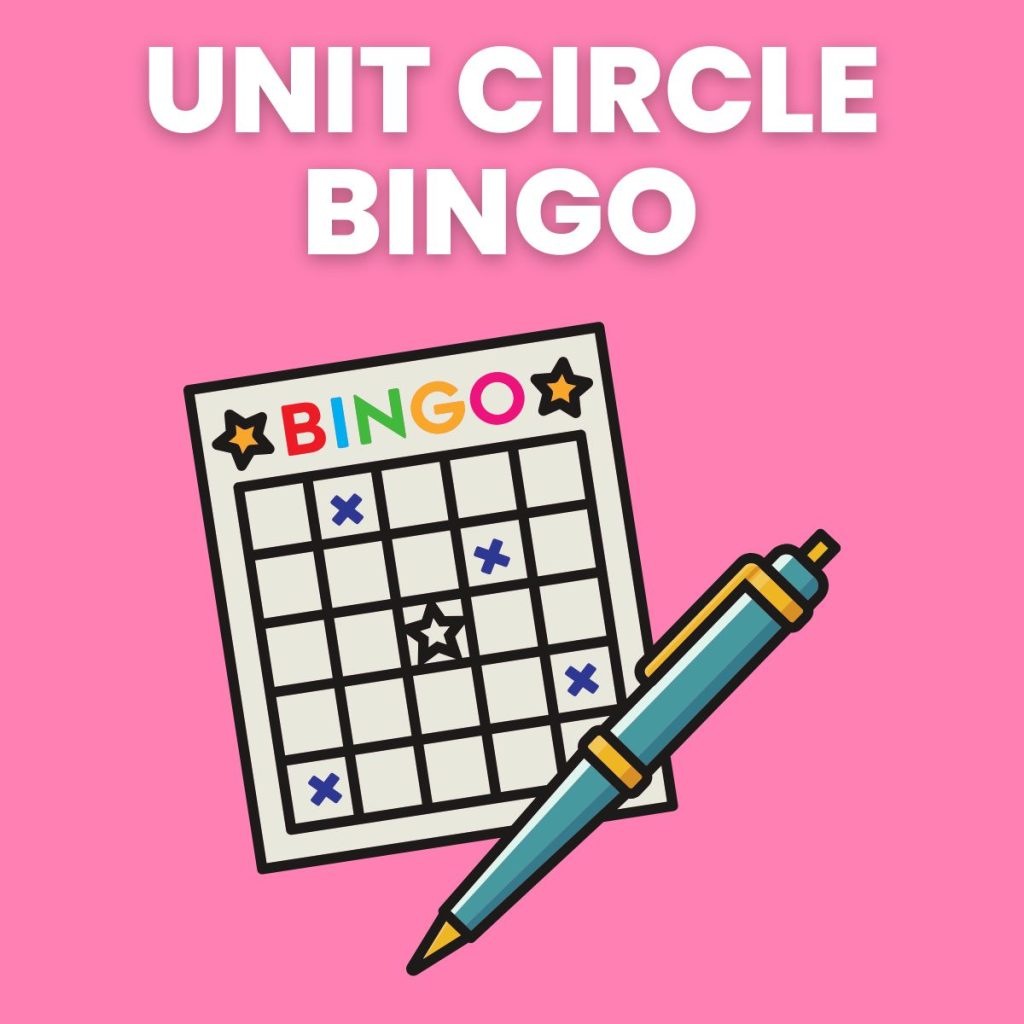
Technically, this is more of a game of connect 4 than bingo, but bingo just sounds more fun. So, Unit Circle Bingo it is!
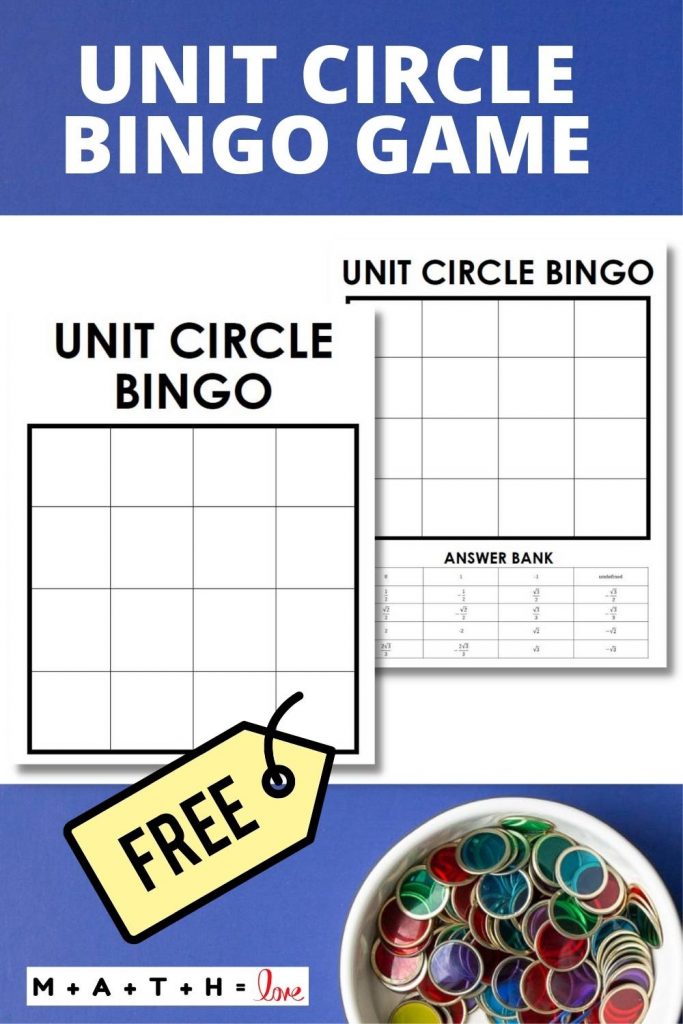
Bingo is one of my go-to practice structures. Over the years, I have played Logarithm Bingo, Probability Bingo, Scientific Notation Bingo, and Element Bingo with my students.
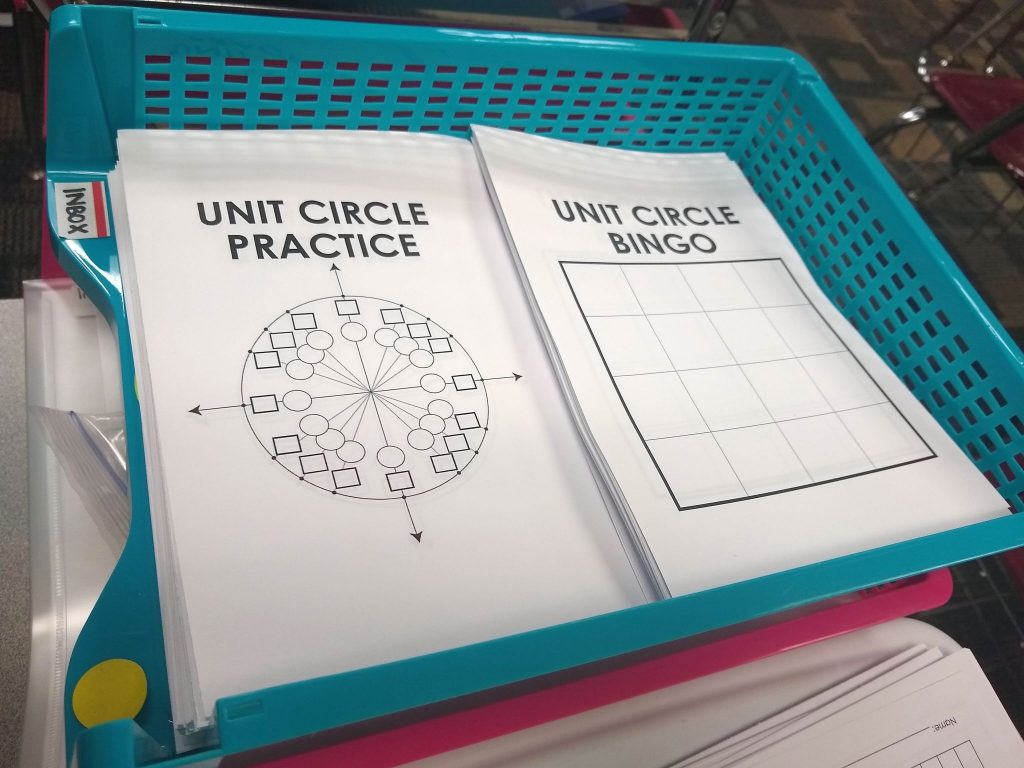
I created two different versions of bingo cards for this game. The first version has a 4 x 4 grid at the top of the page and a table with an answer key of 20 possible answers.
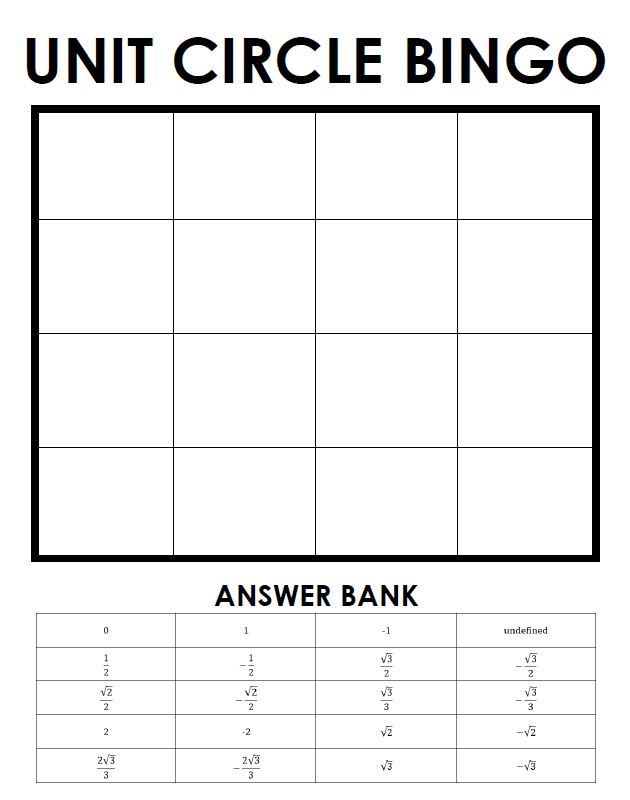
When students receive their bingo cards, they have to pick 16 of the answers from the answer box and place them in the 16 boxes of their bingo card. I make a point of telling students that they should NOT copy their neighbor’s bingo card.
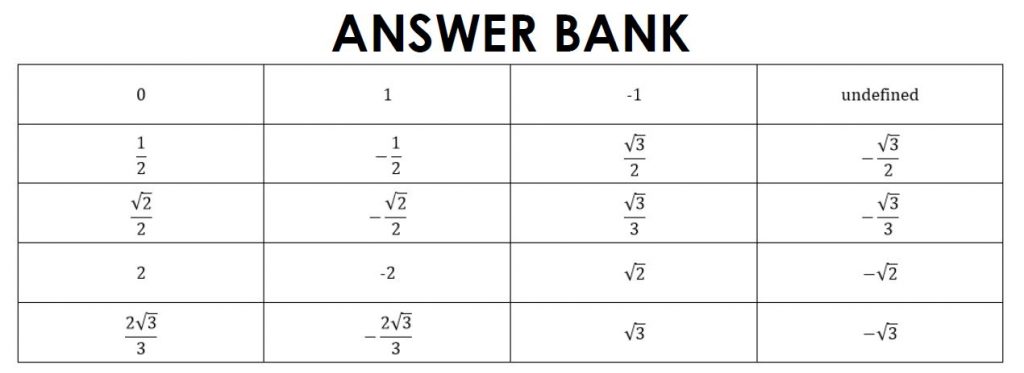
My plan was that students could mark out the answers as they placed them on their bingo cards to make sure they didn’t accidentally put any of the answer choices on their bingo cards twice.
Note: four of the answers will not be used by students on their bingo cards. Students must choose which four values they will leave off of their cards.
I also made an alternate version of the unit circle bingo card which only has the 16 squares.
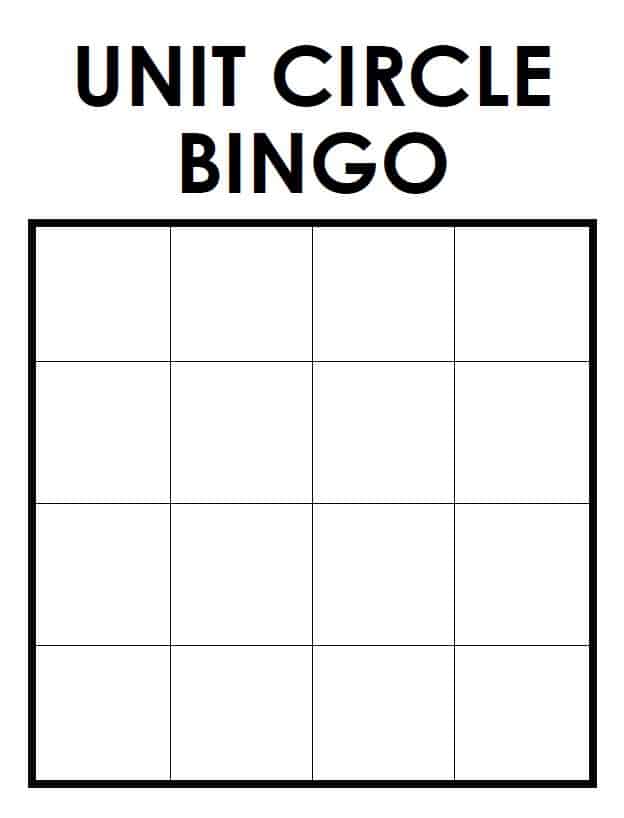
My plan with this was to display the answer bank on my television screen so that students could write their choice of answers on their bingo cards.
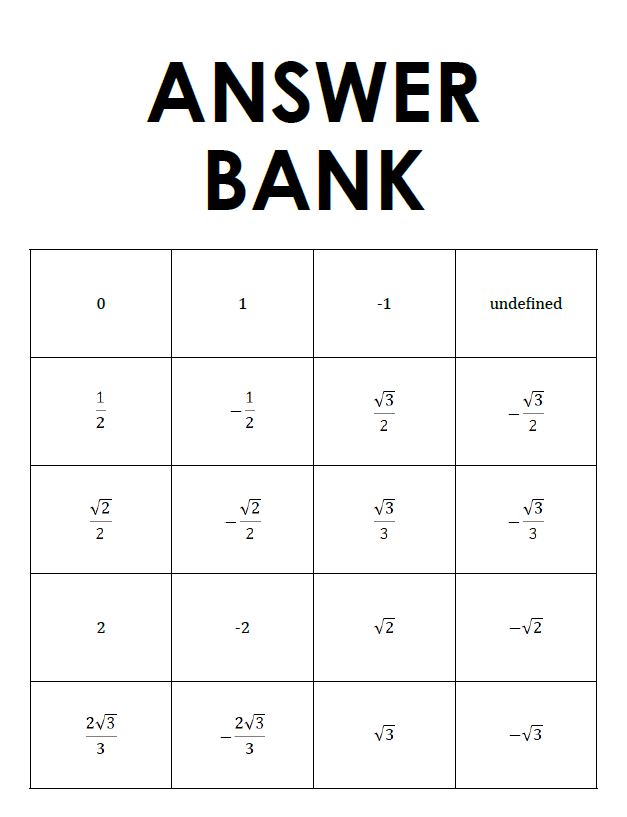
In retrospect, I should have given my students the first version I shared with the answer key on the same page as the bingo card. It took forever for my students to copy the numbers off of the television screen.
Next, I took a stack of 20 index cards and used them to make a card for each of the possible answers. On each index card, I wrote possible questions that I could ask students to find using their unit circles for each of the possible answer choices.
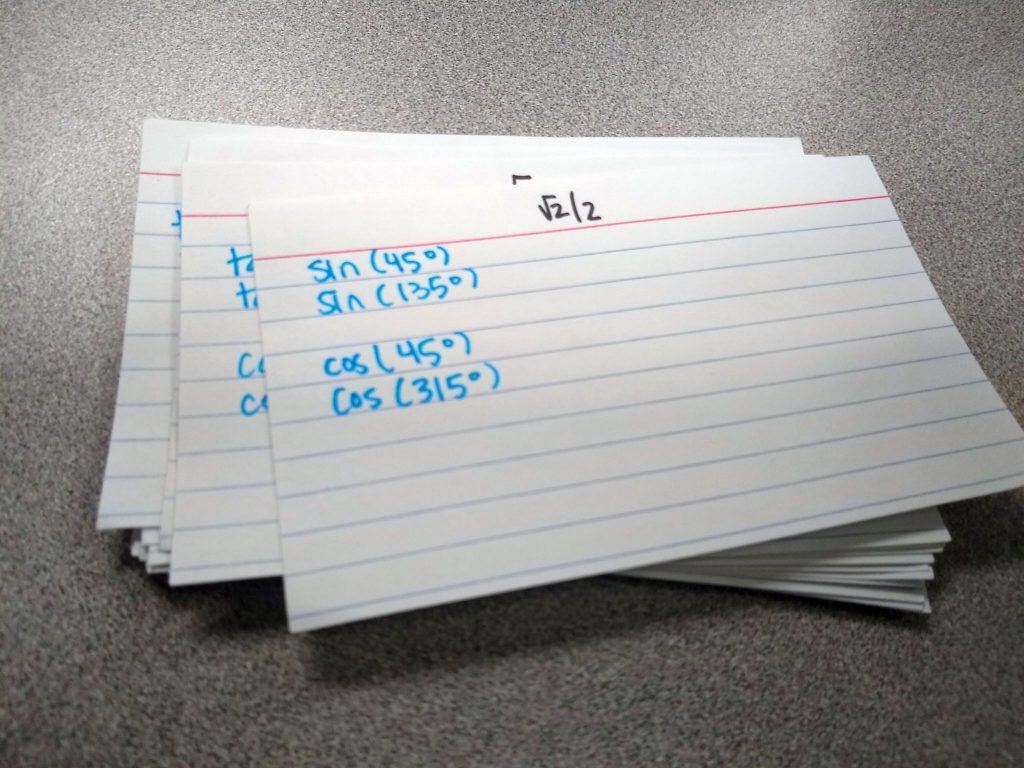
You can customize these questions to match exactly the skills you are trying to get students to practice with. You can include degrees, radians, or a mixture of the two. You can include positive angles and negative angles. You can also include problems such as finding sine of 765 degrees where students need to find a coterminal angle first.
If you want students to reuse their bingo cards, I suggest either placing the bingo cards in dry erase pockets or giving them bingo chips to cover their cards.
MATH = LOVE RECOMMENDS…
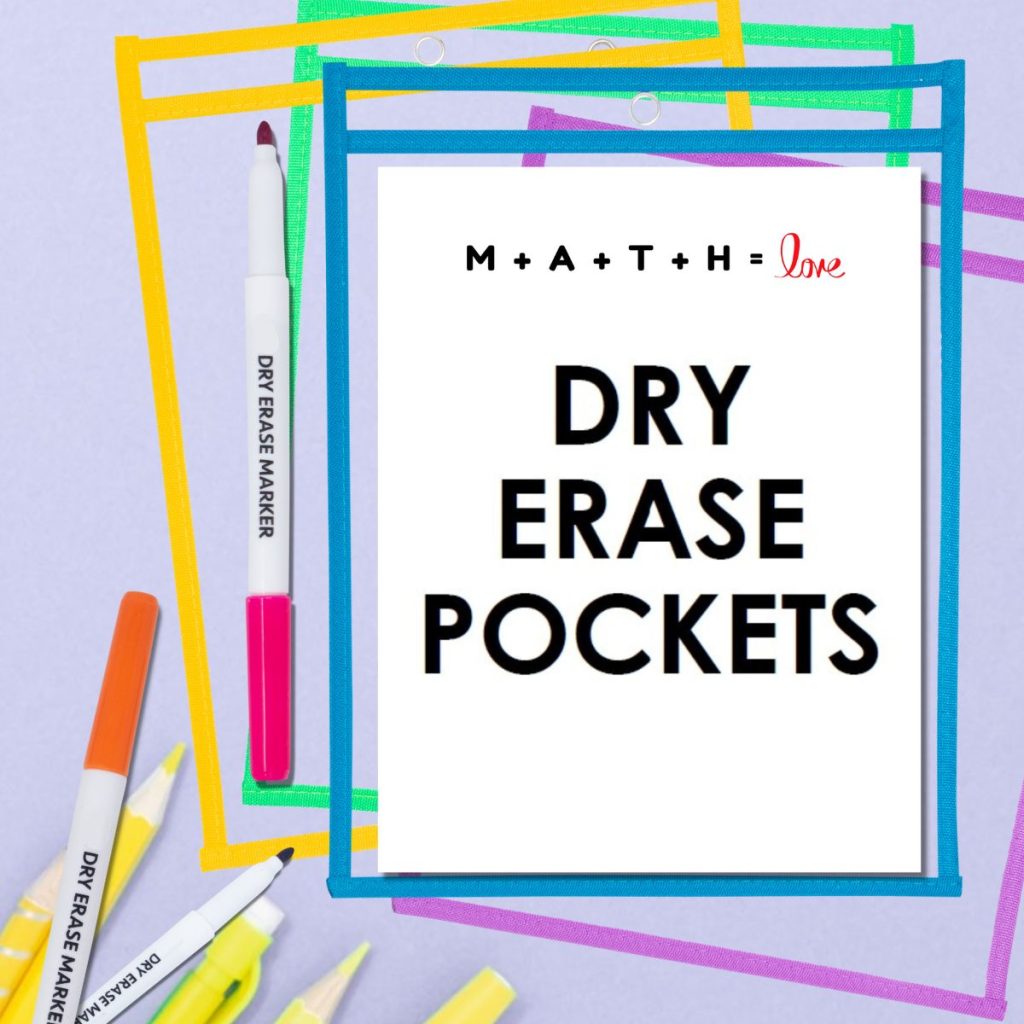
I cannot imagine teaching math without my dry erase pockets! They instantly make any activity more engaging and save me countless hours at the copy machine since I can use the same class sets of copies year after year.
Here are my current go-to recommendations:
If you don’t have a classroom set of dry erase pockets, you could also use heavy duty sheet protectors. But, I highly recommend investing in a classroom set of the pockets since they are so much more durable.
With my first period class, I printed the bingo cards two to a page and had them mark out their answers. This worked, but we ended up wasting a ton of time rewriting our bingo cards before we could play again.
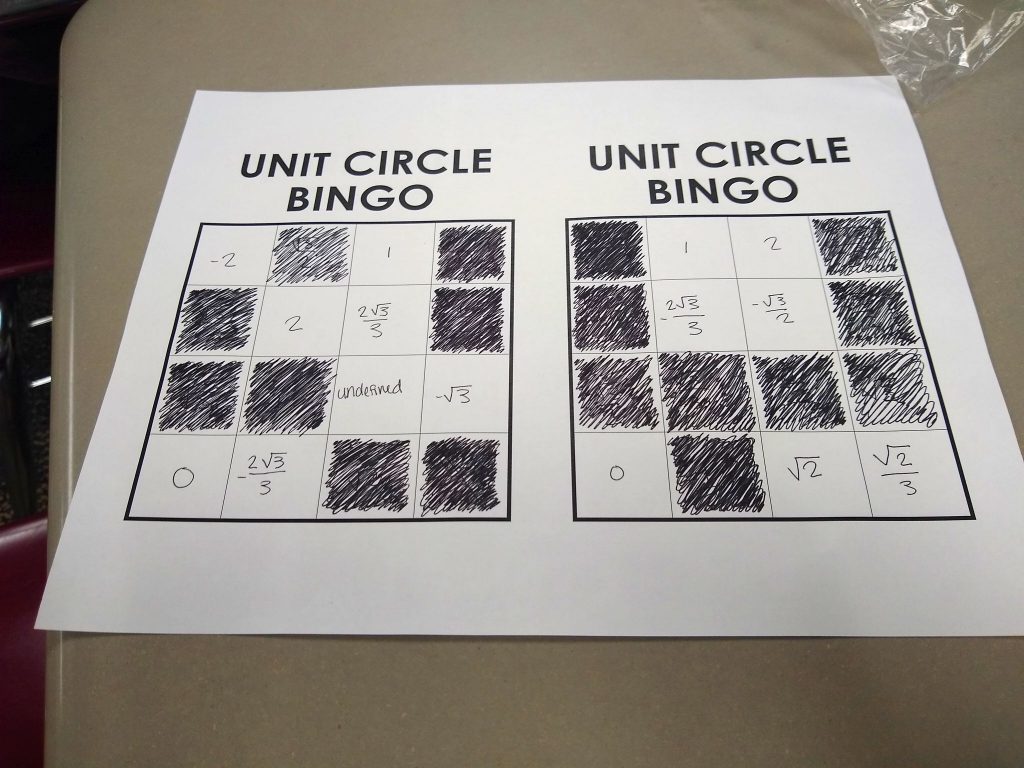
For the rest of the day, we played with a single card and bingo chips.
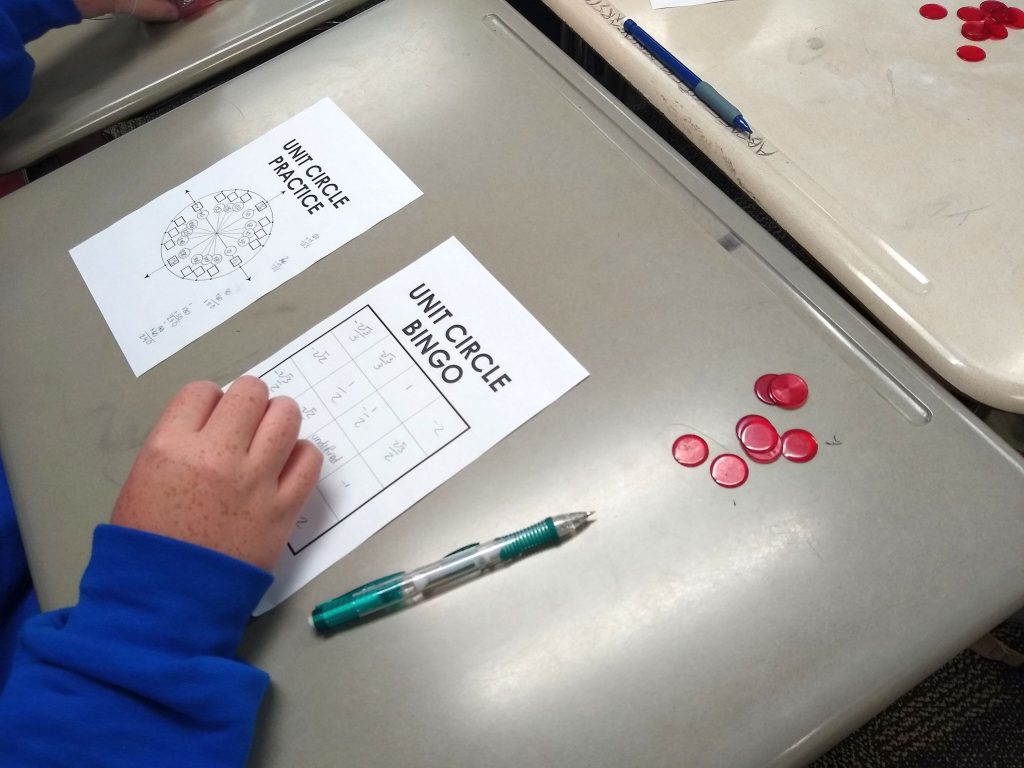
All you have to do once your students have created their bingo cards is shuffle the index cards and begin asking questions one at a time.
I wrote multiple questions on my index cards so I could pick and choose which types of questions I wanted to ask my students. At the beginning, I would try to ask students to evaluate mainly sine and cosine functions since their answers can be found directly on the unit circle.
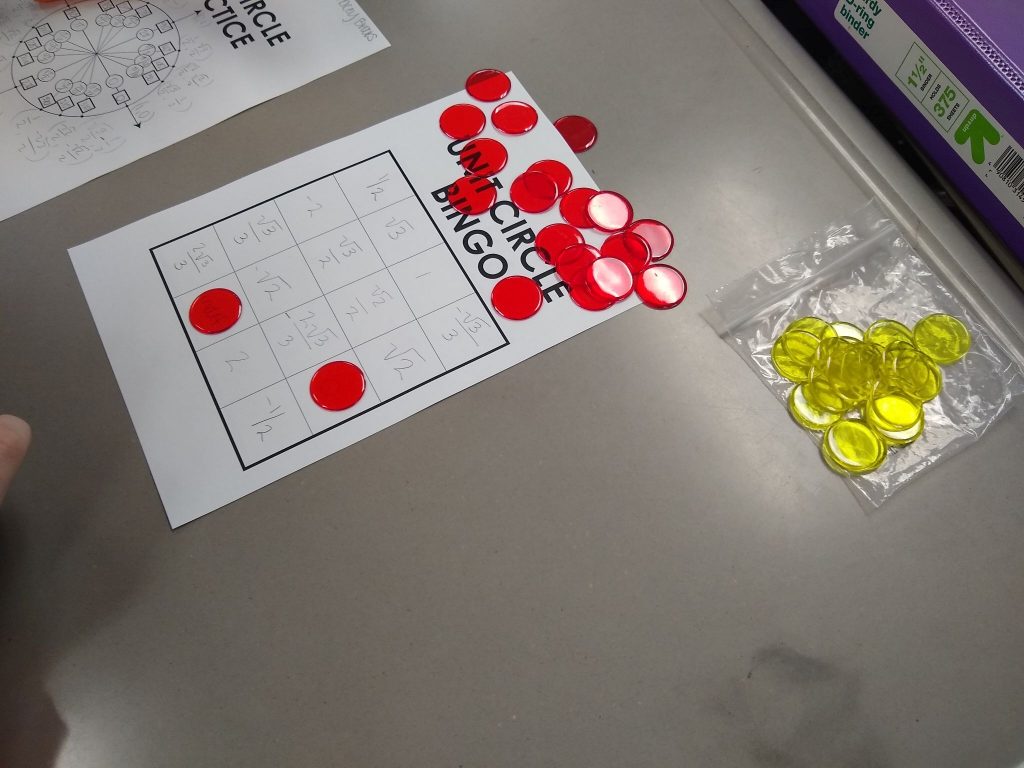
As we progressed throughout the game, I started adding more reciprocal trig functions and quadrantal angles to give students with these trickier questions.
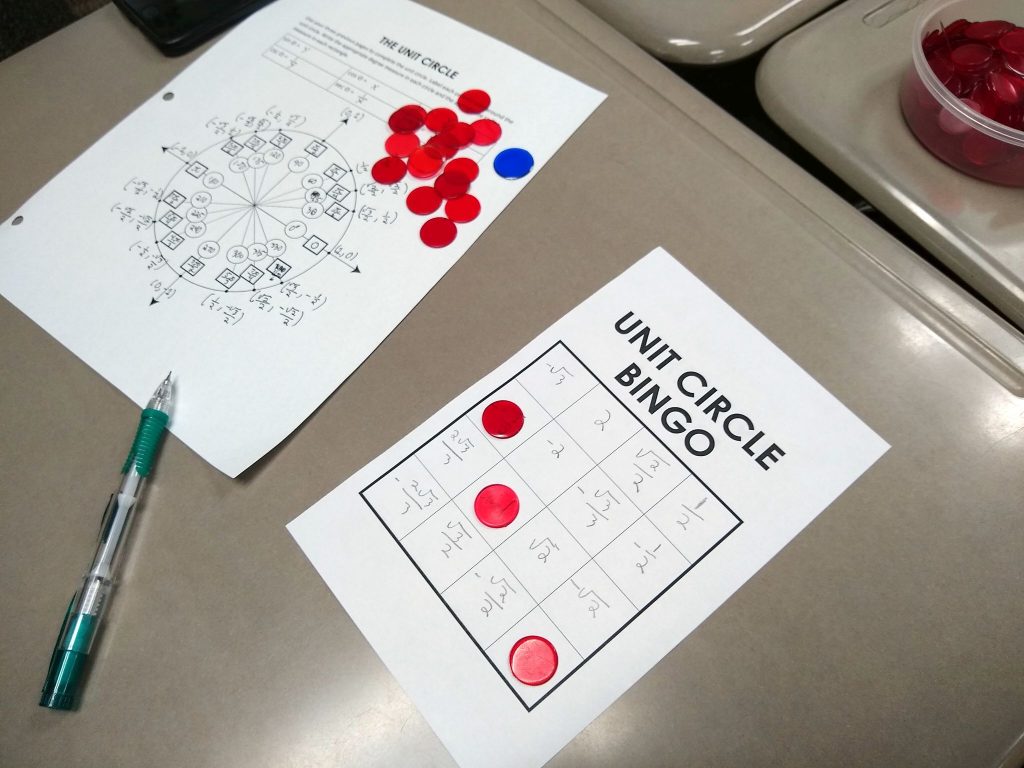
Play continues until a student gets BINGO which in the case of this game is 4 in a row. My students were very disappointed that there was no “Free Space” in our bingo game.
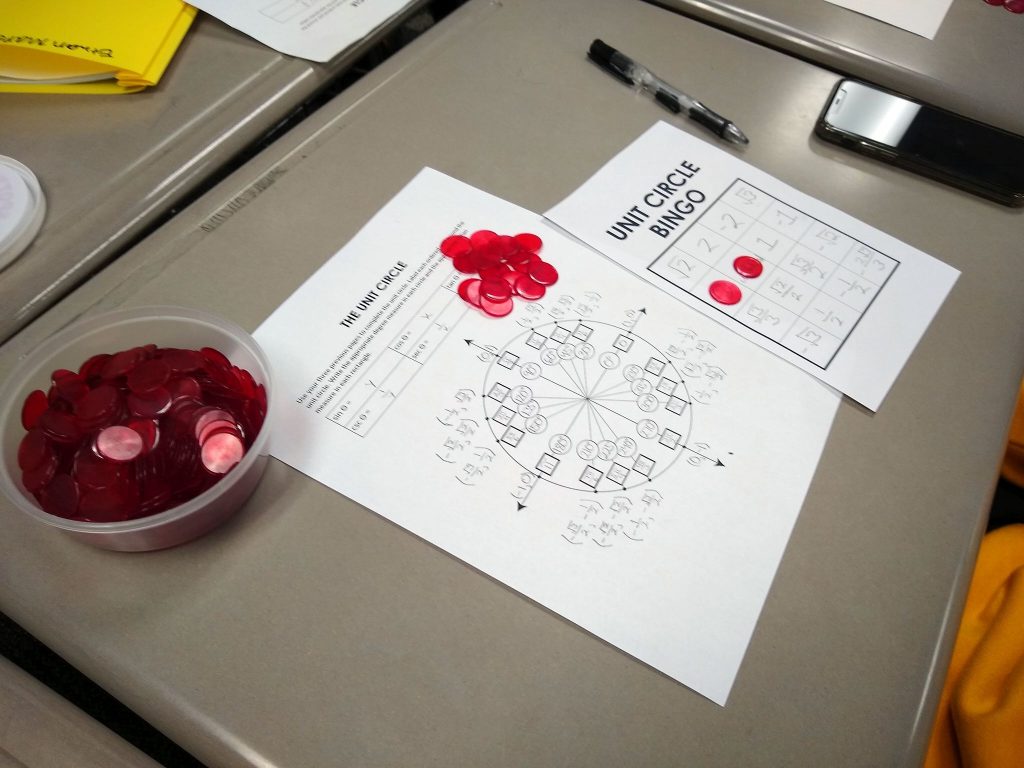
I actually ended up playing each bingo card until 2-3 students had won. After three winners, I had students clear their bingo cards off so we could start again.
My students really enjoyed this method of practicing evaluating trig functions using the unit circle. Another practice activity I used for this same unit circle topic was the Unit Circle Leap Frog Game. We did these two activities on back-to-back days this year.
If your students need some basic practice with evaluating trig functions before playing this Unit Circle bingo game, I suggest checking out my evaluating trig functions puzzle.
Want to create a bingo game for another topic? Check out my blank bingo card printable!
Free Download of Unit Circle Bingo Game
Unit Circle Bingo (PDF) (2960 downloads )
Unit Circle Bingo (Editable Publisher File ZIP) (1552 downloads )
More Activities and Resources for Teaching the Unit Circle
- 7 Engaging Unit Circle Activities
- Fill in the Blank Unit Circle Chart
- Unit Circle Bingo Game
- Deriving the Unit Circle Foldable
- Unit Circle Magnets
- Unit Circle Projects
- Exact Values of Trig Functions Leap Frog Game
- Unit Circle Paper Plate Activity
- Finding Trig Ratios Using the Unit Circle Notes
- Trig Ratios in the First Quadrant Chart
- Unit Circle Interactive Notebook Page

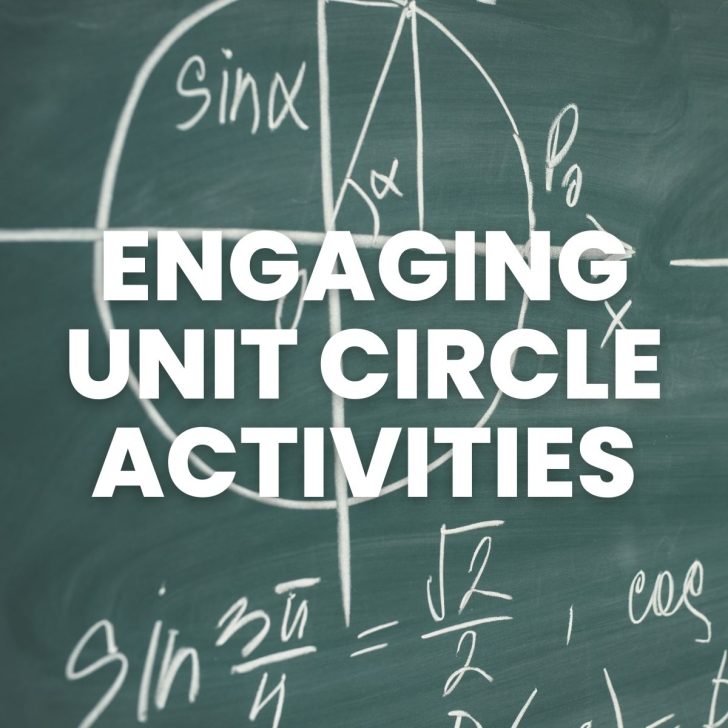
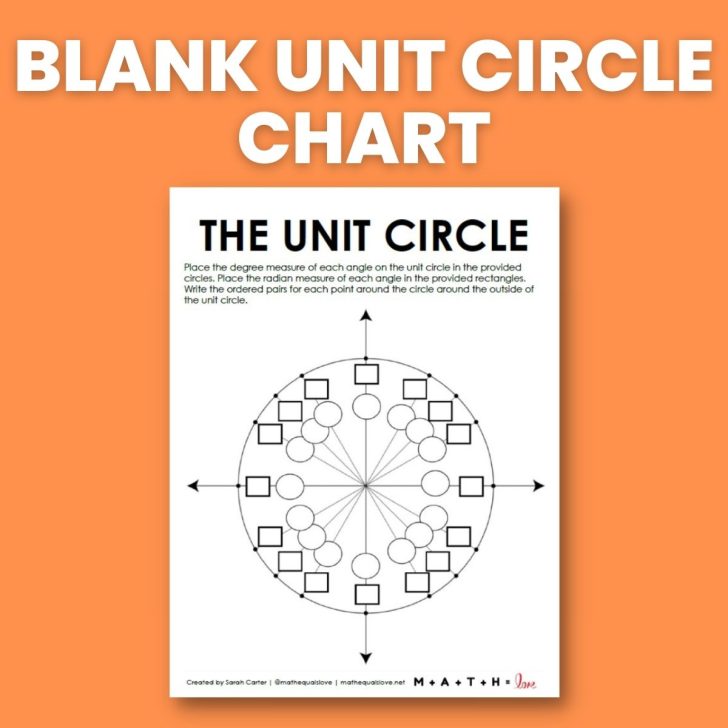
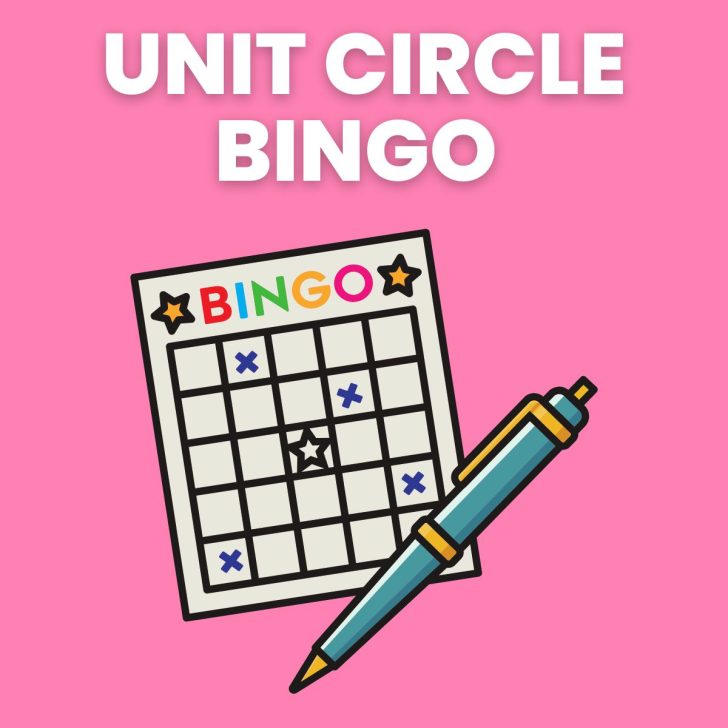
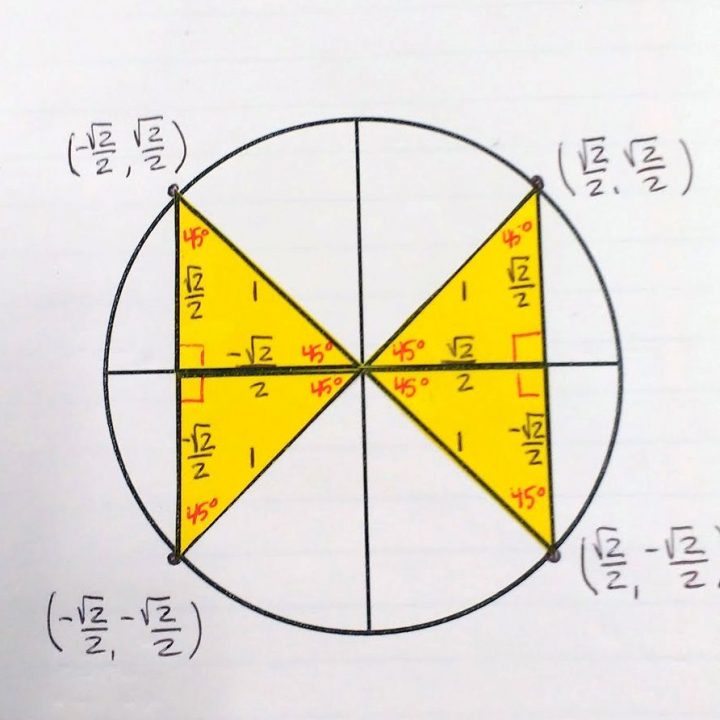
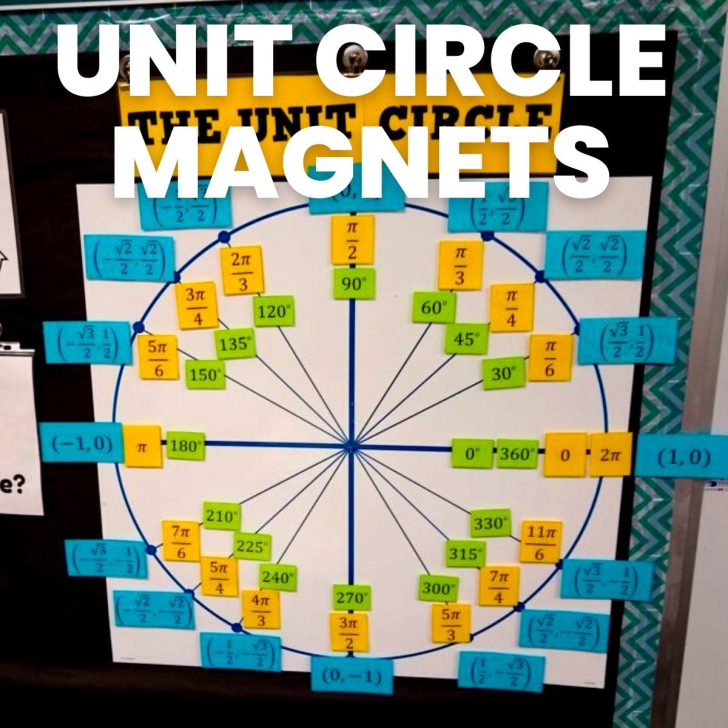
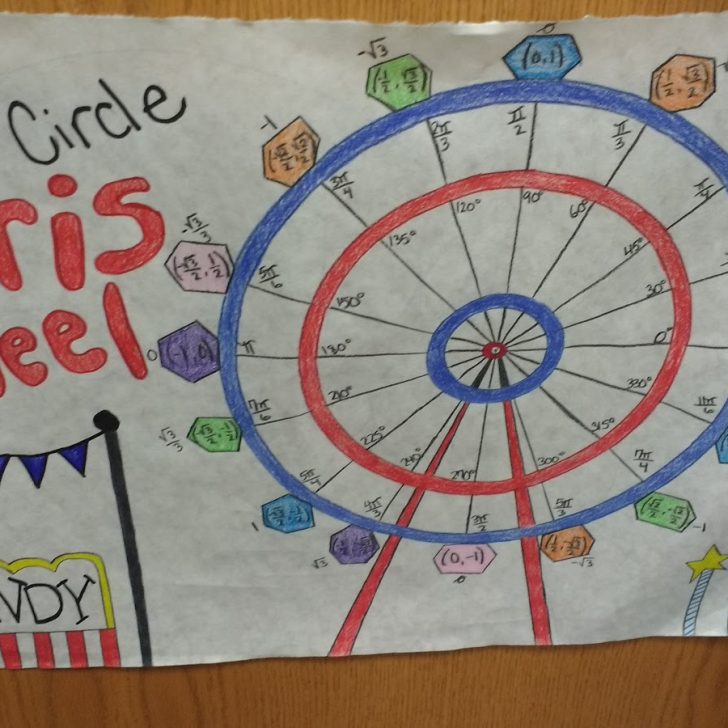
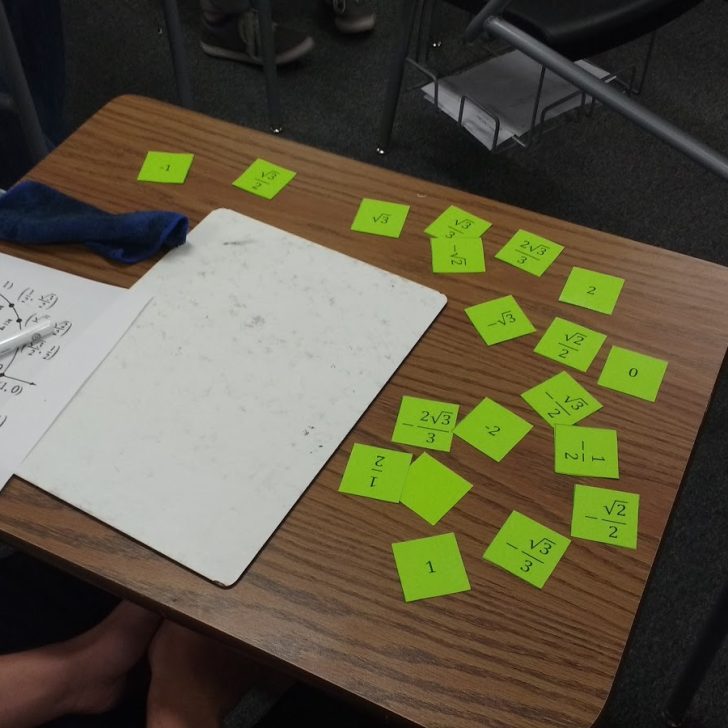
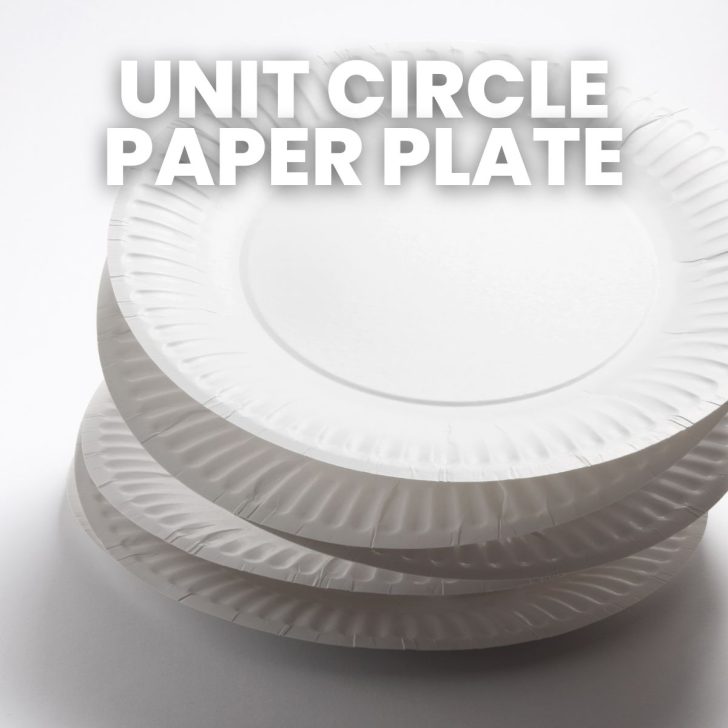
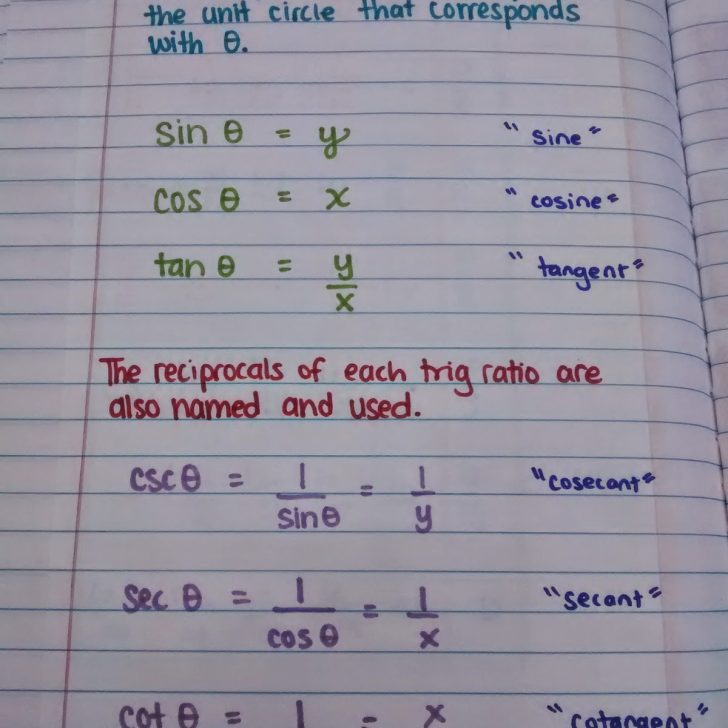
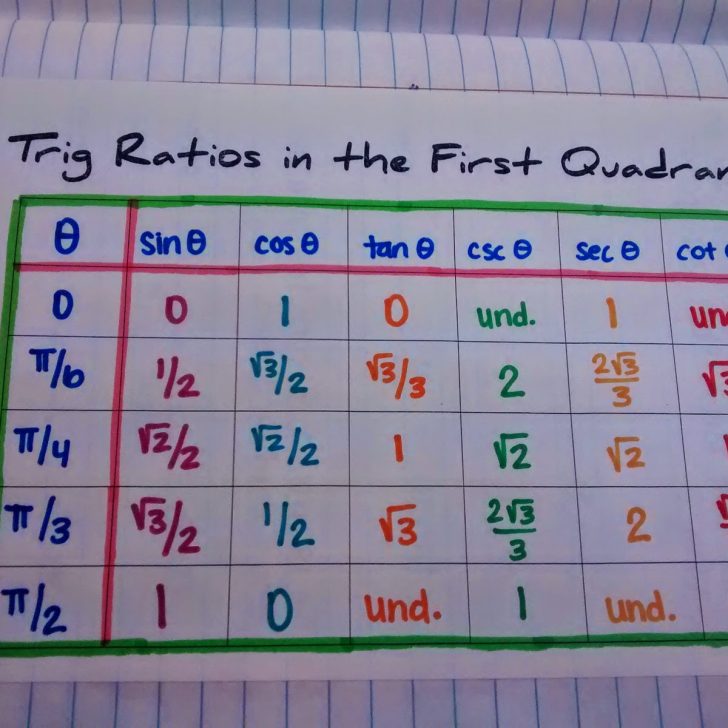
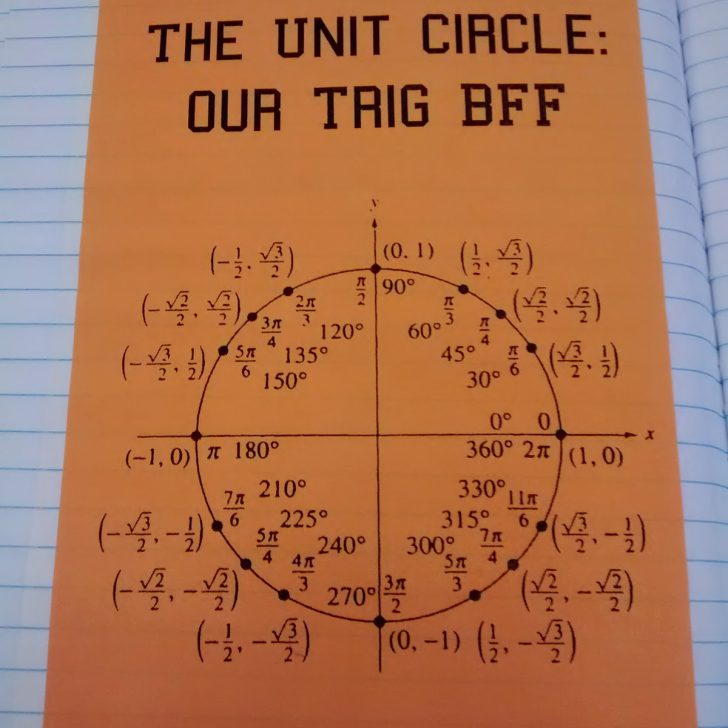
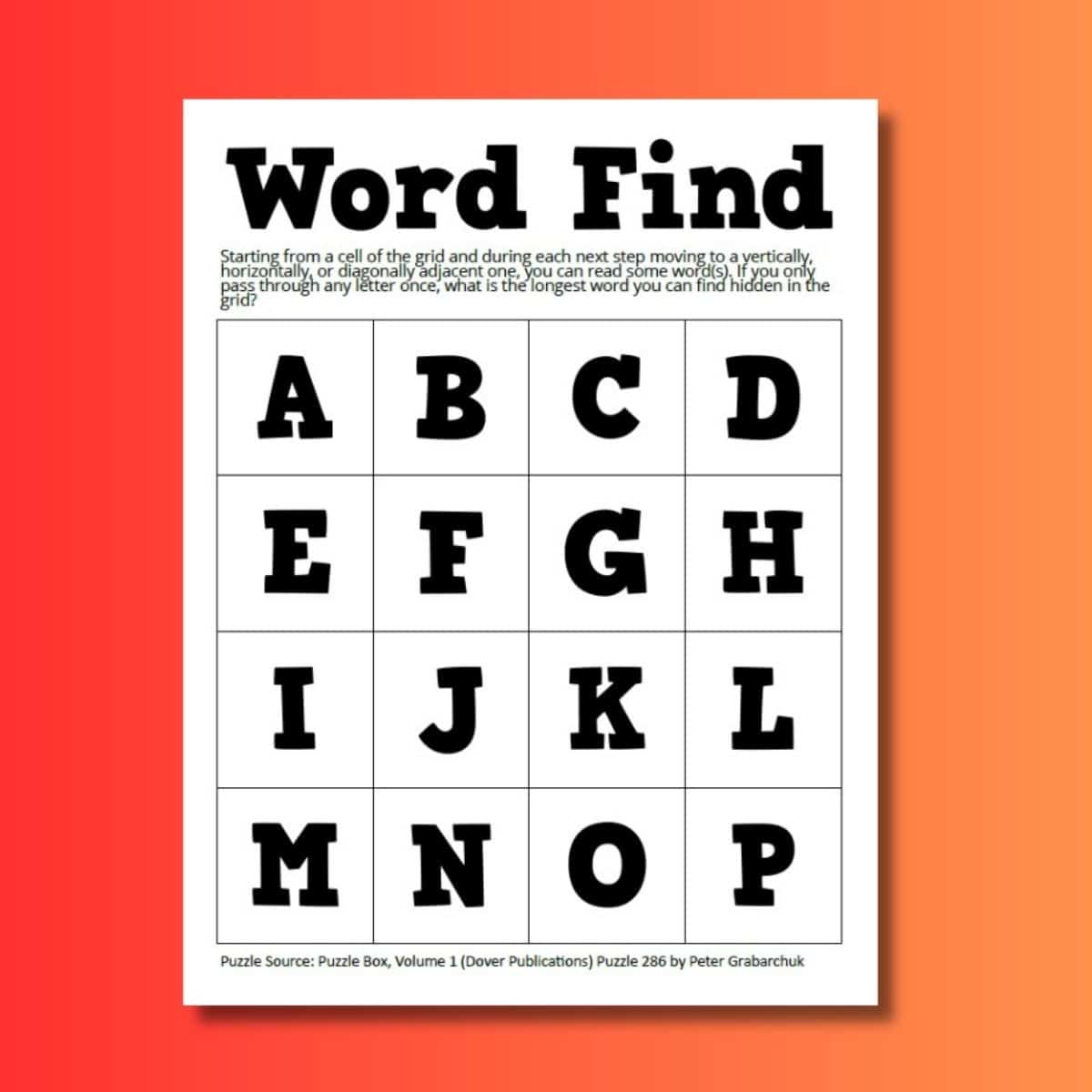
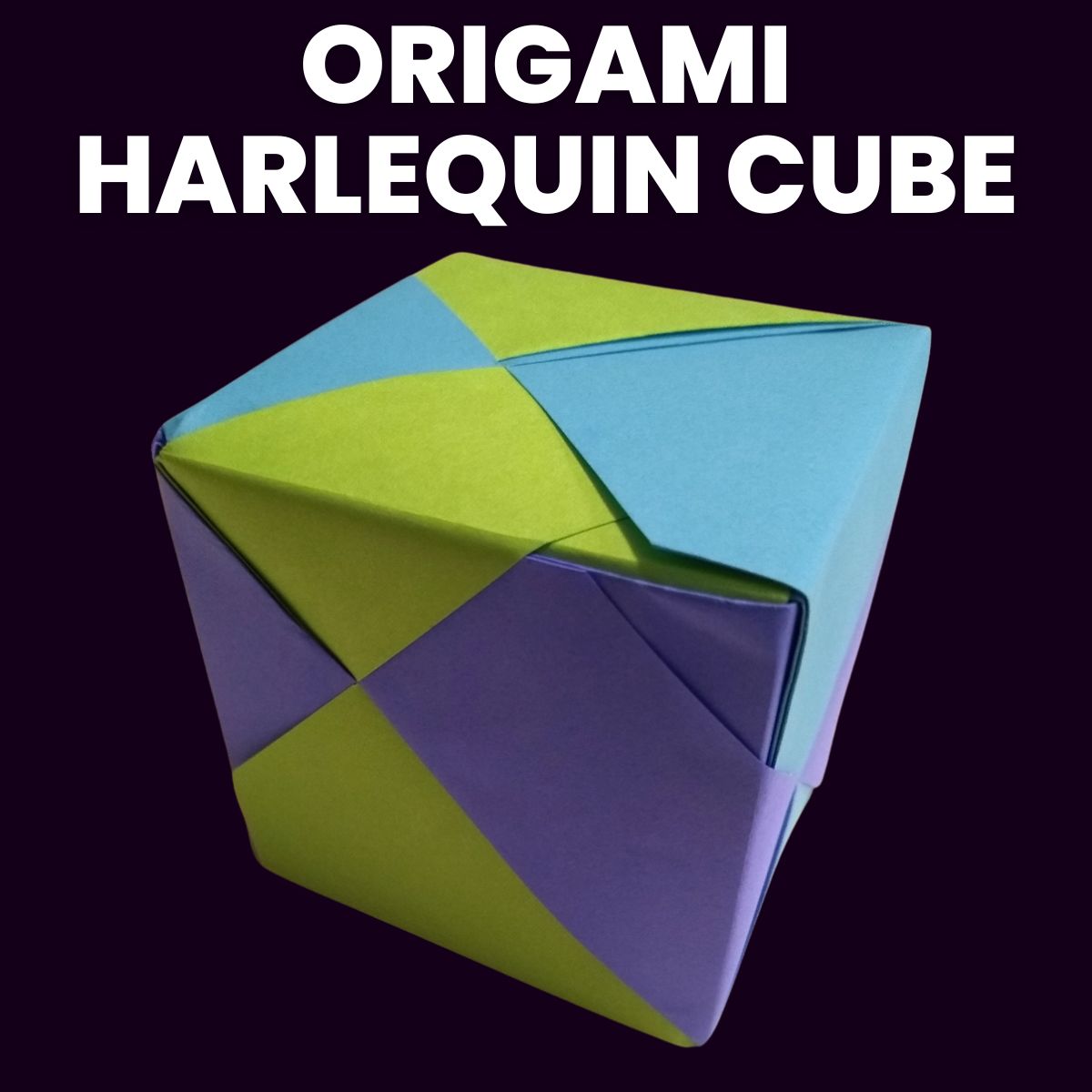
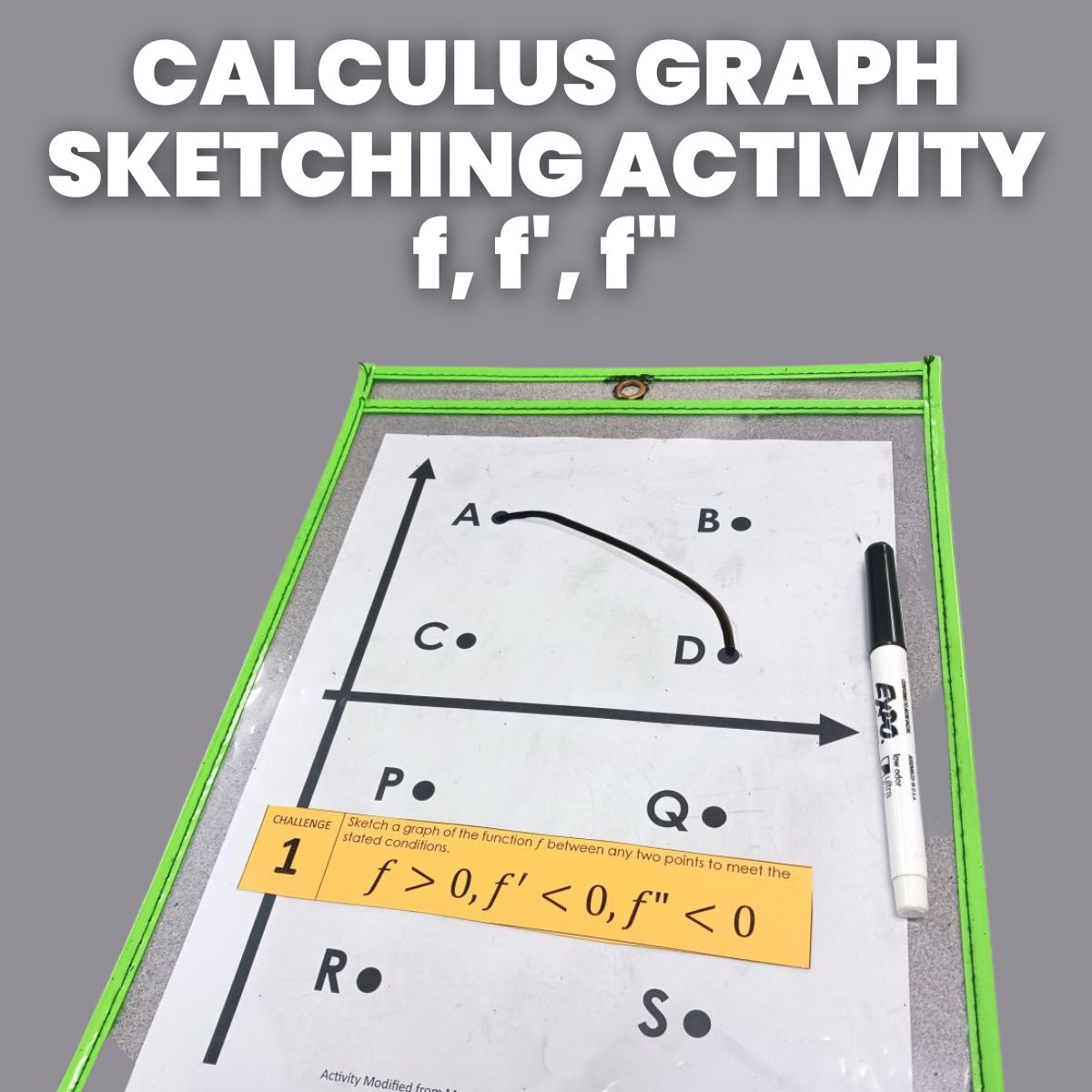
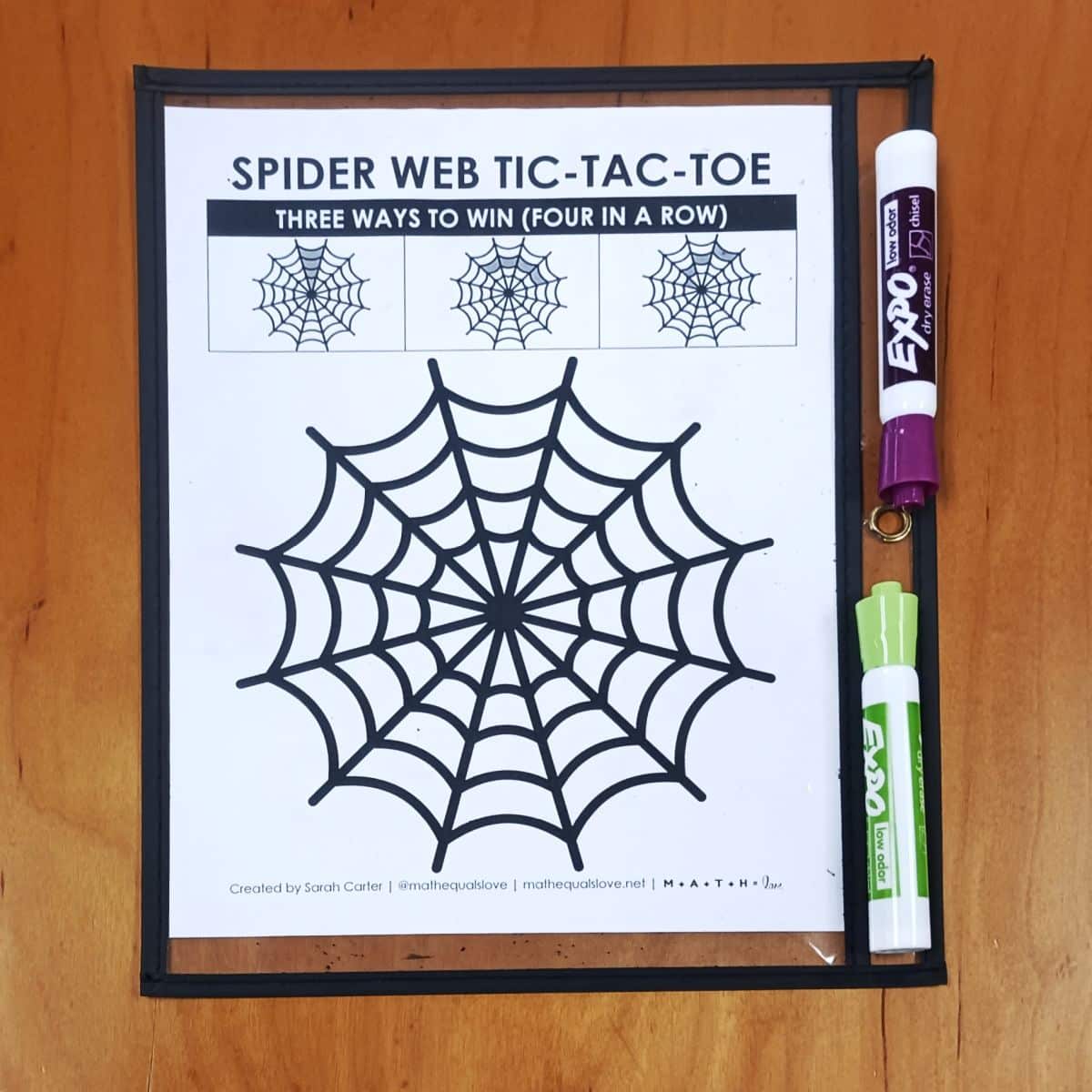
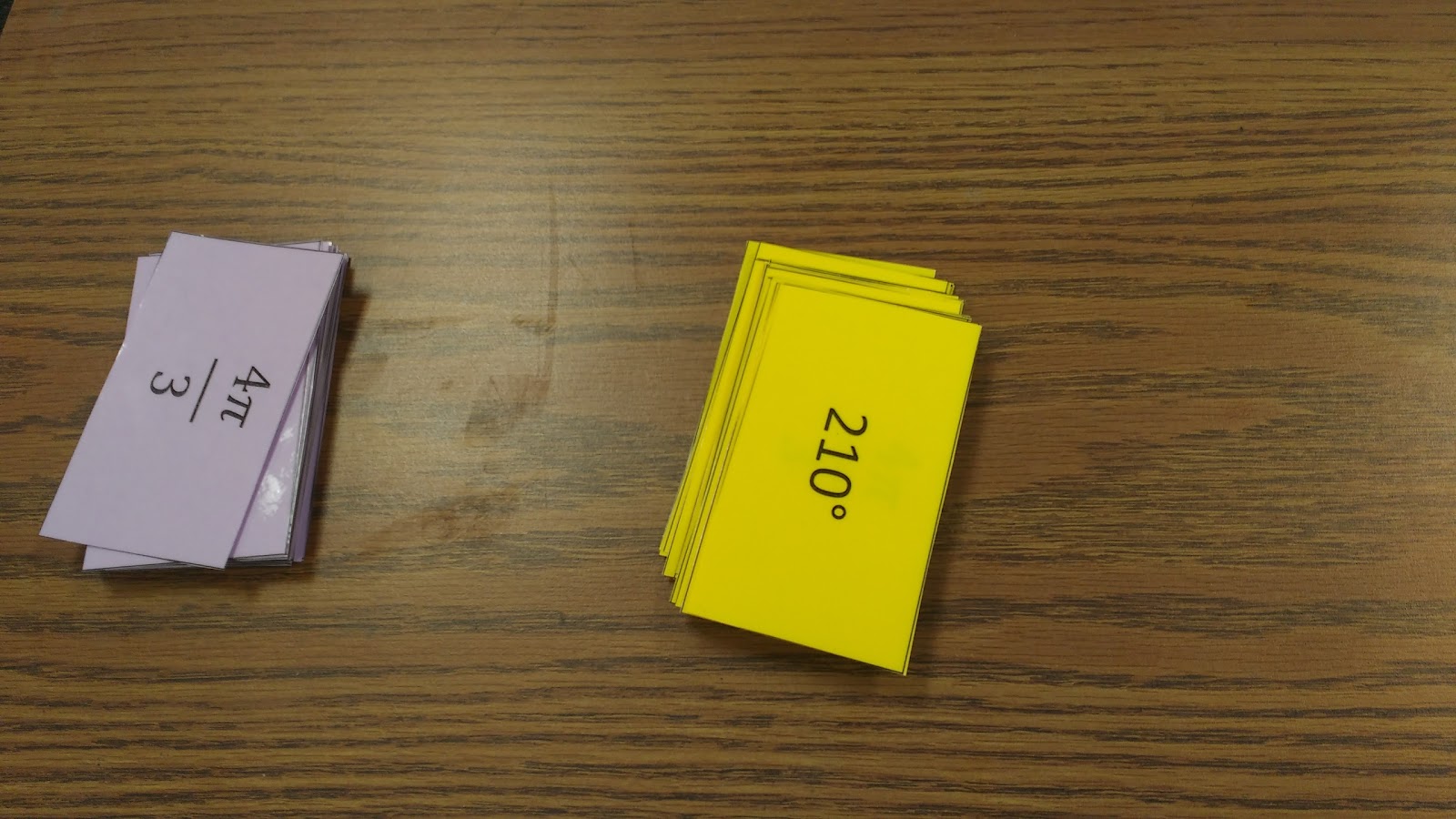
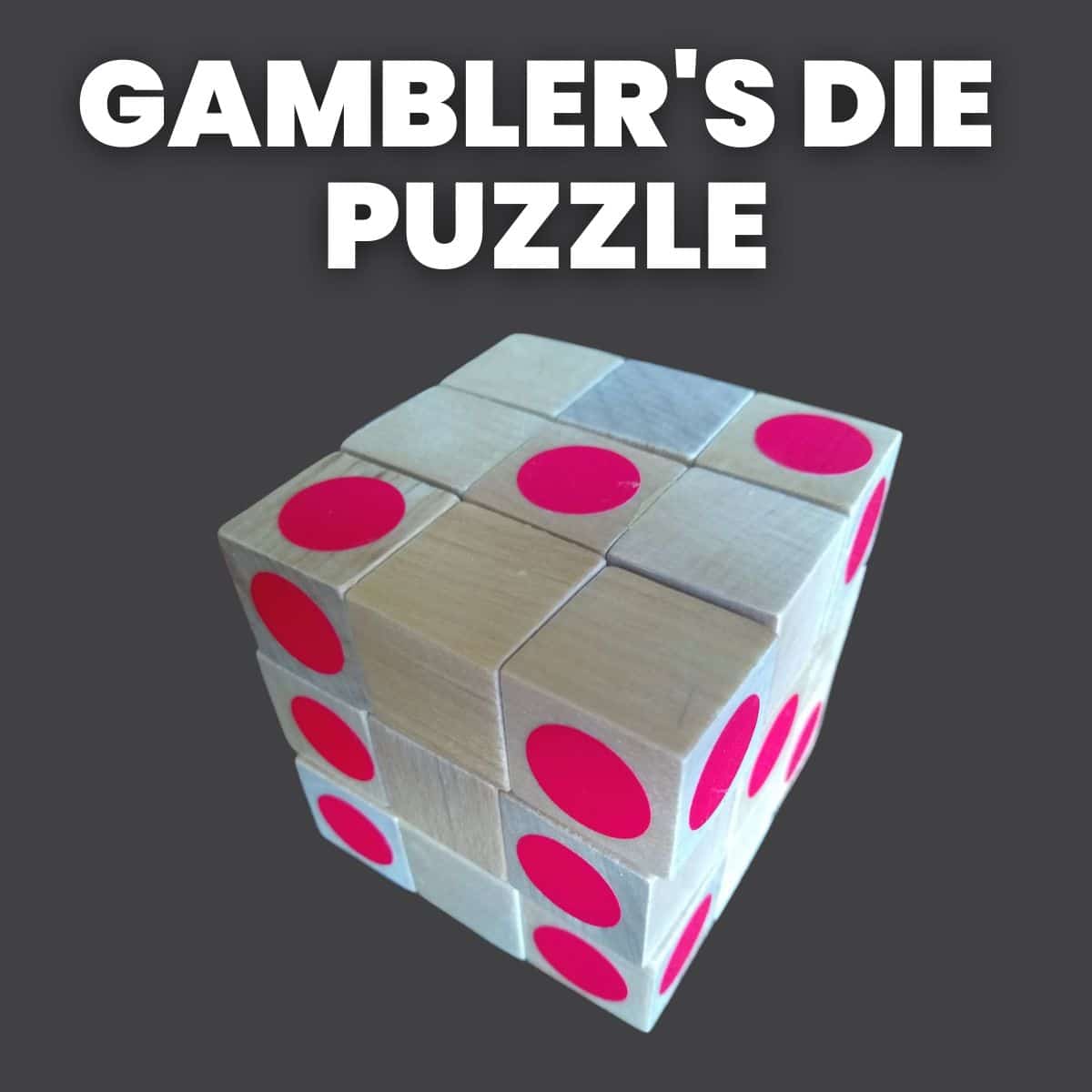
Thank you for sharing. These are great activities to incorporate into a unit on trigonometry!